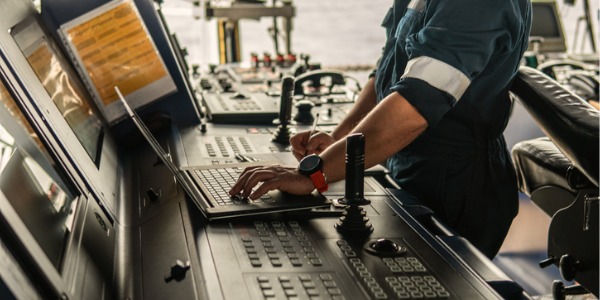What is a Marine Electrician?
A marine electrician specializes in installing, maintaining, and repairing the electrical systems on boats, ships, and other marine vessels. Their work covers everything from wiring and lighting to navigation systems, engines, and communication equipment. Because marine environments are harsh, with constant exposure to water, salt, and vibration, marine electricians need to ensure that all electrical components are safe, reliable, and resistant to corrosion.
Marine electricians can work on a variety of vessels, including commercial ships, fishing boats, yachts, and naval vessels. They often troubleshoot problems, perform regular inspections, and upgrade systems to meet modern safety and efficiency standards. Strong technical skills, attention to detail, and knowledge of marine safety regulations are essential.
What does a Marine Electrician do?

Duties and Responsibilities
Marine electricians have several important duties and responsibilities in their role. Here are some of the key tasks they perform:
- Installation: Marine electricians are responsible for the installation of electrical systems and equipment on marine vessels. They work closely with naval architects and engineers to design and implement electrical layouts that meet the vessel's specific requirements. This includes installing wiring, lighting systems, communication equipment, navigation systems, power distribution systems, and other electrical components necessary for the vessel's operation.
- Maintenance and Repair: Marine electricians conduct regular maintenance checks on electrical systems to ensure their proper functioning. They perform inspections, identify any issues or faults, and carry out repairs or replacements as needed. This can involve troubleshooting electrical problems, testing equipment, and using specialized tools to diagnose and fix electrical faults.
- Compliance with Regulations: Marine electricians must stay up-to-date with relevant maritime regulations and safety standards. They ensure that all electrical systems and installations on the vessel comply with these regulations to maintain a safe working environment. This includes adherence to standards such as the International Electrotechnical Commission (IEC) standards and classification society rules.
- Documentation: Marine electricians maintain detailed documentation of their work, including installation records, maintenance logs, and repair reports. This documentation is crucial for record-keeping, regulatory compliance, and future reference. It helps track the history of electrical systems, identify recurring issues, and plan maintenance schedules effectively.
- Collaboration and Communication: Marine electricians often work as part of a team, collaborating with other crew members, engineers, and technicians. They communicate effectively to coordinate installation or repair projects, share information about electrical systems, and ensure a smooth workflow.
Types of Marine Electricians
Marine vessels rely on a variety of specialized electricians and technicians to keep their electrical and electronic systems running safely and efficiently. Here are some common specialized roles:
- Marine Electronics Technician: These technicians focus on electronic systems on ships, such as radar, sonar, GPS, navigation devices, communication equipment, and sometimes entertainment systems.
- Marine Automation Electrician: They work on automated systems that control ship operations, including engine controls, propulsion, HVAC, and monitoring systems, ensuring everything runs smoothly and safely.
- Marine Power Systems Electrician: These electricians handle power generation and distribution, working on generators, switchboards, transformers, batteries, and backup systems to maintain proper electrical load and reliable power.
- Marine Communication Systems Electrician: They specialize in communication equipment, such as radios, satellite communication devices, intercoms, and other systems essential for ship operations.
- Marine Instrumentation Technician: These technicians install, calibrate, and maintain instruments like pressure gauges, temperature sensors, and flow meters used for monitoring and controlling vessel operations.
What is the workplace of a Marine Electrician like?
A marine electrician’s workplace is usually on ships, boats, or offshore platforms, which can range from small vessels to large commercial or naval ships. The environment is practical and hands-on, with lots of electrical panels, wiring, generators, and control systems. Because these workplaces are exposed to water, salt, and constant motion, marine electricians must be careful to maintain safety, prevent corrosion, and keep everything properly insulated.
On smaller boats or yachts, the workspace is often more compact and accessible. Marine electricians can move around easily to install wiring, troubleshoot systems, and maintain equipment. They often work closely with the vessel owner or captain and may handle multiple types of systems at once, from navigation and communication to lighting and entertainment systems. The work is detailed, requiring both technical skill and careful attention to safety.
On larger ships or offshore platforms, the workplace is more structured and divided into specialized areas. Electricians may focus on power distribution, automated systems, communication, or instrumentation. They often work with other crew members, engineers, and technicians to ensure all systems run reliably. There are also dedicated workshops and labs for testing, repairing, and maintaining equipment. Despite the scale, precision and adherence to safety standards are vital to keeping the vessel operational and everyone on board safe.